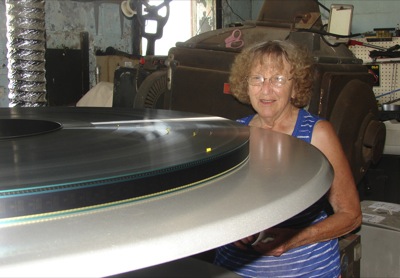Saturday, August 13th, 2011
EPA inspects area farms for pollution
By Nancy Allen
U.S. EPA officials are stopping at Mercer County farms unannounced to investigate for pollution violations.
Mercer SWCD Administrator Nikki Hawk told SWCD board members during a Friday meeting that the EPA visited two farms, a dairy and a steer/chicken operation, the week of April 17. Officials were checking for violations that could result in the farms being required to follow stricter rules.
The EPA has not yet issued any findings.
"I want to dispel any rumors that we (SWCD) are helping them and make producers aware that they may be visited," Hawk said. "We are here to help our farmers with resource concerns if they do get a visit and have questions; we're not on a witch hunt."
U.S. EPA officials plan to visit farms again during the next big rain event, Hawk said. The agency used aerial photographs and drive-bys of farms to decide which ones to visit during its first inspection, she said.
Hawk said EPA officials spent a day at each of the two farms.
Farms found polluting could be required by the U.S. EPA to receive National Pollutant Discharge Elimination System permits. The permits require farmers to allow inspections, keep records on manure application dates, amounts and locations and show that they checked weather forecasts before applying manure.
Critics charge it's the small and medium-sized livestock farms that are causing water quality issues because they are not subject to the same oversight as larger farms that must obtain state permits.
Hawk said the Ohio Department of Natural Resources Division of Soil and Water Resources sent a letter to the U.S. EPA requesting the agency let ODNR know the next time they plan to make farm inspections in the watershed.
Hawk said an Ohio Farm Bureau attorney said the law prohibits warrantless searches of farms, but the U.S. EPA can usually obtain warrants to do them.
Mercer SWCD board member Kevin Bettinger expressed concern over the safety of inspectors when showing up on farms unannounced.
"What would someone do if they found someone on their farm they didn't know," Bettinger said.
Hawk said U.S. EPA inspectors wear bright orange suits with white hats.
A phone message seeking comment from U.S. EPA public affairs officials was not returned.
In other news, shrinking state budgets may result in the consolidation of some of the state's 88 soil and water districts. Board members were asked by the National Association of Conservation Districts (NACD) to write a letter to NACD about their concerns and suggestions.
Board members worried a consolidation might result in problems being handled by people living outside the area and not in touch with local issues.
"With all the problems with soil and water and the lake, you don't want to dilute what we have now," board member Bob Pohlman said.
Board member Bob Guggenbiller agreed.
"With the workload we've got in this county, I don't know what we'd do," he said.
Board members learned that two SWCD conservation technicians should start work by mid-October. The technicians will help farmers in the 193,000-acre Grand Lake/Wabash River Watershed install conservation practices that reduce nutrient runoff, which contributes to hypoxia in the Gulf of Mexico.
The three-year positions will be paid for with $274,000 in federal Mississippi River Basin Initiative personnel funds the district received. The Mercer SWCD will contribute $139,000 in matching funds for three years for technicians' office space, equipment, travel expenses, supplies and training.

